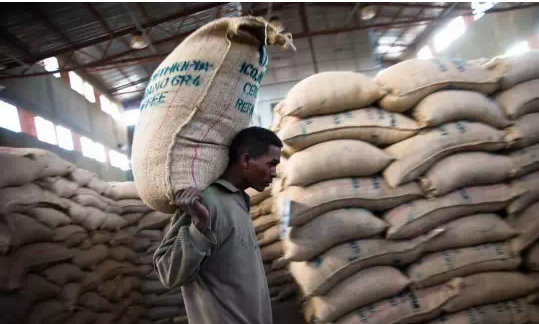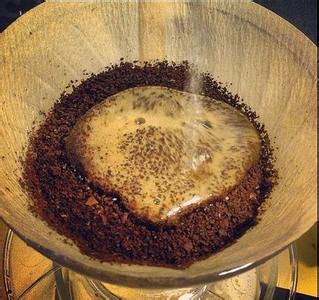Why do African coffee bean producing countries seldom hear about drinking coffee in Africa?
One thing I am very curious about is that coffee comes from Africa, but in many parts of Africa, especially in small towns and villages, few people drink coffee. But after a trip to Uganda, the hometown of coffee, this question can basically be answered.

There are many coffee farms in the village of Budadiri in Mombali, a small town near the Kenyan border in Uganda. Among them, coffee farmer Jaja Kate owns hundreds of thousands of coffee trees. September to December is the coffee harvest season. I follow him to pick red coffee beans on the coffee farm. At first glance, these ripe coffee beans look like small cherries, the color is very attractive.
Jaja Kate is very talkative and happy to live. He takes the children to pick coffee beans and sing songs. The whole family, like relatives, revolves around these coffee trees every day and knows the growth of each tree like the back of their hand.
Coffee originated in Ethiopia in Africa, and then moved to Yemen in the Arab region of the Middle East, so some people call it "Arabik". Then it spread to Java, Indonesia, and from there to Latin America. African coffee was previously grown in Congo, Uganda and other places, for Robster coffee, and a kind of coffee grew in Liberia, for Liberia. In 1753, Swedish botanist Carl van Linnay divided coffee into three original species: Arabica coffee (about 70% of the world's coffee), Roberts coffee (used to account for 25% of the world's coffee), and Liberica coffee, which is now almost unknown.
According to Jaja Kate, the conditions of well-cultivated coffee trees are very strict: sunshine, rainfall, soil, climate and so on will affect the quality of coffee. Sunshine is an essential element for the growth and fruiting of coffee trees, but strong sunlight will also affect the quality, so at this time, we need the surrounding banana trees, mango trees and other help to block the sun in order to achieve a natural balance of sunshine.
At present, the coffee grown by Jaja Kate belongs to Arabica coffee, which is also an excellent coffee bean, of course, it is related to the soil and temperature in this area. As a result, he was very proud, but when asked if he drank coffee, he said that it was only occasionally and not a daily necessity.
"since you deal with coffee beans all the year round, why don't you like coffee?" I asked him.
"although coffee beans originated in Africa, drinking coffee is not a hobby inherited by our ancestors. We didn't have baking skills. At that time, at best, we mashed the dried coffee beans by hand and added some boiled water to drink. In fact, we like to chew sun-dried coffee beans best. Including in the national engagement and marriage ceremony, the woman's family is to send dried coffee beans to the man's family and connect the hearts of the two families with coffee fruits. This is our real traditional custom. "
Now I finally understand why coffee drinking is not as popular locally as in Europe and the United States. Of course, in addition to the more difficult baking technology, there is another very important reason. Local people make a living by selling coffee beans, so they are not willing to drink high-quality coffee beans themselves. Moreover, people can also appreciate the pleasure of chewing coffee beans without losing the aroma of caffeine.
Finally, I had a chance to participate in the engagement ceremony of the Buganda people. In the last item of the ceremony, the woman's parents really handed the dried coffee beans into the hands of the groom and his relatives. After that, everyone shared the joy of chewing coffee beans, which also indicates that the marriage can continue peacefully and beautifully.
Important Notice :
前街咖啡 FrontStreet Coffee has moved to new addredd:
FrontStreet Coffee Address: 315,Donghua East Road,GuangZhou
Tel:020 38364473
- Prev

Korean adults drink an average of 341 cups of coffee a year.
According to a survey by South Korea's Culture Daily, South Korean adults over the age of 20 drank 314 cups of coffee last year, an increase of 14.4 percent over the previous year, and coffee imports were close to 600 million US dollars at the same time. In the past 10 years, South Korea's coffee imports have increased by 15.3%, and the number of imports has increased by 3.6 times. According to Meng Zhe, member of the Statistical Research Committee of the Korea Customs Trade Development Institute on the 13th
- Next

Taiwan's super merchants sell hand-brewed coffee for 60 yuan and the assailant hits the market.
Taiwan, March 15 (Xinhua) according to Taiwan media reports, in recent years, Taiwan's hand-brewed coffee market has attracted more and more attention. Supermerchants also push hand-brewed coffee to test the water temperature, with a unit price of 60 NT dollars (NT $, the same below). However, hand-brewed coffee is more exquisite after all, and the brewing process is twice as long as that of ordinary fresh coffee, about four minutes. People taste fresh, but they also need to wait patiently, while watching people rush to the market.
Related
- The ceremony is full! Starbucks starts to cut the ribbon at a complimentary coffee station?!
- A whole Michelin meal?! Lucky launches the new "Small Butter Apple Crispy Latte"
- Three tips for adjusting espresso on rainy days! Quickly find the right water temperature, powder, and grinding ratio for espresso!
- How much hot water does it take to brew hanging ear coffee? How does it taste best? Can hot water from the water dispenser be used to make ear drip coffee?
- What grade does Jamaica Blue Mountain No. 1 coffee belong to and how to drink it better? What is the highest grade of Blue Mountain coffee for coffee aristocrats?
- What are the flavor characteristics of the world-famous coffee Blue Mountain No. 1 Golden Mantelin? What are the characteristics of deep-roasted bitter coffee?
- Can I make coffee a second time in an Italian hand-brewed mocha pot? Why can't coffee be brewed several times like tea leaves?
- Hand-brewed coffee flows with a knife and a tornado. How to brew it? What is the proportion of grinding water and water temperature divided into?
- What is the difference between Indonesian Sumatra Mantinin coffee and gold Mantinin? How to distinguish between real and fake golden Mantelin coffee?
- What does bypass mean in coffee? Why can hand-brewed coffee and water make it better?

